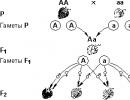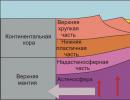General pronouns Every, Each, Everything, Everybody and Everyone, Either, All. in English. Indefinite Pronouns in English Singular and Plural Pronouns
Indefinite pronouns in English indicate unknown, uncertain objects, signs, quantities. They do not point to specific objects or people, but are used to describe them in general.
For example:
None of them have come yet.
Nobody one of them hasn't arrived yet.
Some are born great, some achieve greatness.
Some great people are born, but some become great.
Nobody came to his rescue.
Nobody did not come to his rescue.
Somebody has let the cat in.
Somebody let the cat in.
Few escaped unhurt.
Few managed to get out unscathed.
Indefinite pronouns can take singular, plural, or change their number form depending on the context.
Below is a table with all the indefinite pronouns, indicating what number form they can take.
| Singular | Plural | Singular or plural | |
| anybody- anyone | anyone- somebody | several- some | all- All |
| anything- anything | each- every | both- both | more- more |
| either– any (of two) | everybody- All | others- other | some- some |
| everyone- All | everything- All | few- A little | most- majority |
| much- a lot of | nobody- nobody | many- a lot of | none- no one, nothing |
| neither- none (of two) | no one- nobody | any- any | |
| nothing- nothing | one- one | ||
| other- another | somebody- anyone | ||
| someone- somebody | something something | ||
Many indefinite pronouns in English can be used as adjectives:
One day my prince will come.
My prince will come one day.
He is man of few words.
He is a man of few words.
Some milk was spilled.
Some milk was spilled.
Let's talk today about one feature of English that is not particularly discussed anywhere and therefore can sometimes completely confuse students.
To begin, please translate one phrase into English,write down somewhere what happened, and then read on. Pay special attention to the translation of highlighted words.
So how do you say in English: “Whensomeone buysI want ice cream, I read Shakespeare for him”?
Translated?
***
So the point is that words that end with-body or -one (somebody, anyone, everyone, nobody, etc.) have one verystrange property.
On the one hand, after these words the British put verb in singular. That is, for example,in present timeattach an ending to a verb-s (as always after he, she, it):
Somebody wants to speak to you over there. - There's someone there who wants to talk to you. (Not somebody wants, and somebody wants).
Nobody likes to lose. - Nobody likes to lose. (Not nobody likes, and nobody likes).
Yes, only here there is a slight glitch. If we continue to talk about this very “ somebody ", then we call it " they ” (not “he”!) and say the verbin plural(in the example five lines below - “go”, not “ goes" !
Therefore it is correct to say this:
***
Here are more examples:
Anyone can learn to cook if he's been around for a month to culinary school. - Anyone can learn to cook if they go to a cookery school for a month.
Someone's calling! - Tell to him that I'm not at home! - Someone’s ringing the doorbell! -Tell them I'm not in.
Similar examples include the title of Sting's song - If You Love Somebody, Set Them Free - “If you love someone, give to him (or in the case of Sting, after all “ her” ) freedom.”
***
Now let's do a little exercise. Translate these phrases into English. Then check yourself with the keys.
Remember: it is very useful to read the keysout loud several times. And also very usefulreturn to this exerciseseveral more times on other days - only then you will not only remember the material, but will be able to speak these phrasestruly free.So please don't be lazy! The reward for your work will be very pleasant.
Translate into English.
1 If someone will lose I'll give him my umbrella a box of dried mango.
2 In Japan everyone loves themselves To look after with your fish.
3 Nobody likes it when their car breaks down.
4 Has anyone finished their test yet?
5 Do you hear these sounds?Someone is setting up theirs trombone.
6 Who's calling? If it's someone from the bank, tell him that I will pay next week.
7 Do you see? The migrant workers smile and nod, butno one understands what he needs to do.
Mini dictionary
give - give
a box of dry mangoes
look after the fish (not fishes)
break down (about a car) - break down
do you hear? - can you hear? (but not do you hear?)
tune the trombone - tune the trombone
guest worker
nod - nod
See you soon!
Anton Brejestovski
KEY to the exercise
1 If somebody loses their umbrella, I will give them a box of dry mangoes.
2 In Japan everyone likes to look after their fish themselves.
3 Nobody likes it when their car breaks down.
4 Has anybody finished their test?
5 Can you hear these sounds? Somebody is tuning their trombone.
6 Who's calling? If it’s somebody from the bank, tell them I’ll pay next week.
7 Do you see? The guest workers are smiling and nodding, but no one understands what they need to do.Words derived from every-, some-, any- and no-
Words derived from every-, some-, any- and no-
In English there are some two-part words, the first part of which contains the pronouns every-, some-, any- and even the particle no-. The principle of using such words intersects with the theme of the last section. You will need to remember all the words presented and learn to speak them well.
everybody, somebody, anybody, nobody
These four pronouns refer only to a person. Let's consider the meaning and application of each in order.
everybody - everyone
Everybody knows where you work- Everyone knows where you work
Everybody is waiting for them - Everyone is waiting for them
Please note that this and other similar pronouns have the third person singular form (he, she). If necessary, verbs must be put in this form.
Don't say: Everybody know or Everybody are waiting.
Everyone left the cafe and went to the square
somebody - someone, anyone (in statements)
Somebody told me that you were ill- Someone told me that you are sick
I"m looking for somebody to share a flat- I'm looking for someone to rent an apartment together
The pronoun somebody is used in the same cases as the separate some - in affirmative sentences.
Say it yourself:
Someone calls me every night
anybody - anyone (questions and negatives)
Does anyone know how to get to the stadium?- Does anyone know how to get to the stadium?
Is anybody home? - Is anyone home?
I don"t see anybody - I don’t see anyone
The difference between somebody and anybody is based on the contrast between some and any (see previous section ).
Don't say: I don't see somebody.
Say it yourself:
Do you know anyone here?
No, I don't know anyone
nobody - no one
Nobody loves me - Nobody loves me
Nobody said a word - Nobody said a word
Say it yourself:
Nobody believes you
Since nobody already carries a negation, the verb in the sentence will be in the affirmative form to avoid double negation. Literally, such sentences will be translated into Russian as follows: Nobody loves me or Nobody believes you.
Now try to translate the following sentences into English yourself, choosing the correct pronoun:
Are you inviting anyone to the party?
Everyone wants to know English, but no one wants to learn it
Someone is waiting for you outside the door
The four pronouns considered have duplicate words: everyone, someone, anyone and no one, respectively. They are similar in both design and meaning.
Everybody is happy = Everyone is happy
Somebody is waiting for you = Someone is waiting for you
Does anyone speak Spanish here? = Does anyone speak Spanish here?
Nobody understands us = No one understands us
From the examples you can see that the pronoun no one is actually written separately, unlike all other words.
In fact, we said a little superficially that words with roots -body and -one are similar. In meaning they are very similar, but still some subtleties in their differences can be highlighted. For example, everybody is closer in meaning to the Russian “everyone”, and everyone is closer to the Russian “everyone”. And if we want to put the preposition of after such pronouns, then it is more correct to use words with the root -one.
Everyone of you is so kind to me- Each of you is so kind to me
Can anyone of them turn the light on?- Can any of them turn on the light?
Instead of no one, however, in the case of the preposition of, its modified version will be used - none.
None of us is able to alter the history- None of us can change history
Say it yourself in English:
Everyone needs a good teacher
Do any of you know Peter?
I don't think any of us know Peter?
everything, something, anything, nothing
If pronouns with the roots -body and -one mean people, then words with the root -thing mean inanimate objects.
everything - everything
I"m tired of everything - I’m tired of everything
something - something, anything, something (statements)
I need to tell you something - I need to tell you something
anything - anything, anything (questions, negatives)
Does she know anything about Ancient Rome?- Does she know anything about Ancient Rome?
We don"t hear anything - We don’t hear anything
Less commonly, anything can be found in affirmative sentences meaning “anything.”
I can give you anything you want- I can give you everything you want
nothing - nothing
What's wrong? - What happened?
Nothing - Nothing
Say it yourself in English:
Do you see anything?
I don't want to eat anything
I liked everything
What? - Nothing
Other pronouns and adverbs
There are a sufficient number of similar compound words with the pronouns every-, some-, any- and the particle no- in the English language. We will not analyze the remaining words in detail, but will only list some of them. Always remember the differences between some and any .
everywhere - everywhere, everywhere
somewhere - somewhere, somewhere, somewhere
anywhere - anywhere, anywhere
nowhere - nowhere
somehow - somehow
anyhow - somehow
anyway - in any case
To practice, say it yourself in English:
Cars are everywhere now
Have you seen Patricia anywhere?
No, I haven't seen her anywhere
They have nowhere to live
I think we will solve this problem somehow
Is there any way you can fix my car?
I'll stay here anyway
In English you can find many more similar compound words. Only the most common ones were considered here. Be sure to complete the practical assignments.
Exercises
Exercises
Exercise 1
Tell me what the following pronouns and adverbs mean
somebody, everything, nobody, anybody, anything, something, everyone, nothing, somewhere, everywhere, somehow.
Exercise 2
Translate sentences from English into Russian
1. They don't believe anyone;
2.
She told that she loved someone, but didn't tell his name;
3.
Yesterday my boss got angry and went somewhere in the middle of the meeting;
4.
Will your parents go anywhere on holiday this summer?
5. I have nowhere to go;
6. We have nothing to tell you;
7.
No one came to my birthday party;
8.
Everybody forgot to pay the bills except me;
9.
I had to tell you something very important;
10.
Could you recommend me anybody to make me a haircut?
Exercise 3
Translate the sentences into English
Body
1.
Will anyone watch this movie?
2.
Nobody will watch this film;
3. Everyone wants to sleep;
4.
We didn't want to disturb anyone.
1.
I will listen to each of you;
2.
Are you going to call someone?
3.
Nobody can play better than you;
4.
None of you can win this game;
5.
Someone is screaming on the street.
Thing
1.
Is there something in this bag?
2.
There is nothing in this bag;
3.
I have nothing to tell you;
4.
I love spring. Everything is so fresh and green.
Where
1.
Mike can't find his keys anywhere;
2.
You should look for them somewhere else;
3.
She would like to live somewhere in Europe.
Pronouns every And each mean “every”, “everyone” and are used exclusively before a countable noun (that is, objects that can be counted) and only in the singular. Both every and each exclude the use of an article before a noun. You should say:
each day (each a day – not true), everyday (every a day – not true)
In short, the difference between each and every is as follows:
This is not all the difference between every and each, so we carefully read the article.
Cases of using the pronoun each.
The pronoun each is used:
- when we are talking about a strictly limited (situation, context) number of persons or objects:
Each employee at our office has got a car. — Every employee in our office has a car.
- in meaning ' each one separately’.
Each car was decorated with flowers and ribbons. — Each car was decorated with flowers and ribbons.
- in a phrase each one on its own without a subsequent noun
Three managers were present at the meeting. Each one was given a contract form. — Three managers were present at the meeting. Each was given a standard contract.
- only each, and not every, can be used in relation to two persons or objects.
She was wearing a fine gold chain on each ankle. “She wore a gold bracelet on each ankle.
- in phrases each of... the pronoun each is used with the preposition of, followed by a personal pronoun in the objective case or a noun with the definite article the:
Each of us could be at his place. “Each of us could be in his place.”
- each is used in the following stable combinations:
Remember!
After each, a noun and a predicate verb are used singular, and after each of – a noun or pronoun in the plural, and the predicate verb is also only in the singular.
Each building in this street has been repainted this summer. — This summer, every building on this street was repainted.
Each of the cooks at this competition was awarded with a diploma. — Each chef at this competition was awarded a diploma.
The only exception is the case when each is used for greater expressiveness after pronouns or nouns:
They each are taking a friend with them. – Each of them plans to take a friend with them.
Use of the pronoun every.
The pronoun every is synonymous with pronouns
- all - everything
- everyone – everyone, everyone
- everything - everything
Cases of use.
- Every used when talking about three or more persons or objects:
Every house will be equipped with central heating. - Each house will be equipped with central heating (Everyone means everything).
We enjoyed every minute of the film. — We enjoyed every minute of the film (the whole film).
- Every can indicate that something happens at certain intervals of time or distance.
- The pronoun every forms derivatives in combination with the words -body, -thing, -one and -where.
When derivatives of the pronoun every (everybody, everything, everyone) are subjects in a sentence, the verb-predicate with them is singular.
Everybody knows it. - Everyone knows this.
Everything was ready before his arrival. “Everything was ready before his arrival.”
Expression each of...( us, them, etc. ) cannot be translated into English by every of. In this case, the construction is used every one of(us, you, them).
Every one of us will be given a bonus. — Each of us will be given a bonus.
Remember the difference.
Everyone = everybody - means everything (together).
Every one - each individual (object or person).
Today we will return to this topic again and reveal a few more secrets to you, in particular, find out what number the word is considered to be today everybody whether it is identical to "everyone", and when to use somebody.
Everyone or Everybody
It must be said that both words: everyone and everybody are interchangeable and mean “every person” (every person), so use whichever one you like best.
Everyone or Every One
Google shortcode
Sometimes it happens that the word “everyone” is written separately - this is not an error, but absolutely the same thing. True, the majority prefer to write together, and both pronouns mean “everyone, everyone.”
Singular or Plural?
When it comes to indefinite pronouns, experts begin to argue about what number the words everyone and somebody are and what verb should follow them.
Although we are considering the pronouns everyone and everybody, similar rules apply to the indefinite pronouns no one, nobody, anyone, anybody, someone and somebody. Actually, everyone is interested in only one thing - what date are these pronouns? Some argue that the word everyone, for example, sounds like “a lot of people” BUT! in the land of grammar everyone, like other indefinite pronouns, is singular and agrees with a singular verb, e.g.

In England it is acceptable to use everyone and everybody with a singular verb and a plural pronoun (for example, “Everyone is here, I can see them!”).
In America, however, things are not so simple and American linguistic scholars object to the use of plural pronouns their, them, they with indefinite pronouns everyone or everyone. The crux of the problem is that there is no word in English that refers to a singular noun of neutral gender. As a solution, grammarians have previously suggested using the phrase “his or her,” but not everyone is comfortable saying the following sentence: “Everyone is putting a hat on his or her head.” Therefore, we would not recommend using this type of construction.






